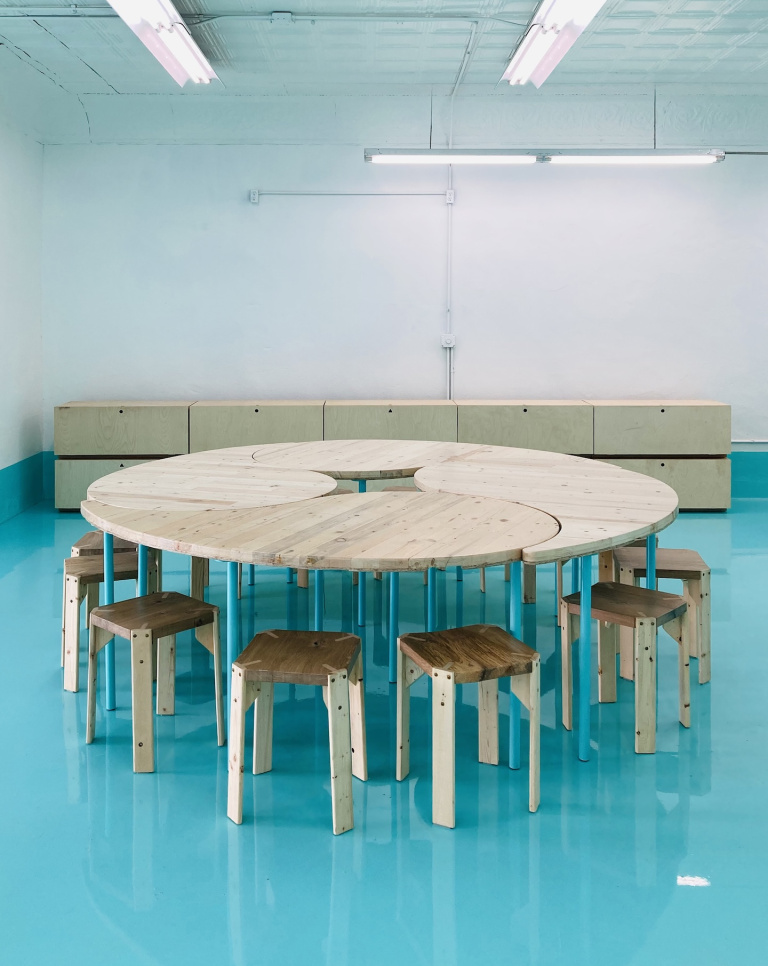Saturday Sessions

View of the Medina Triennial Hub. Photo courtesy Serweta Peck.
12–2 PM
Inside The Hub
This conversation with Kari Conte, Karin Laansoo, Serweta Peck, and Mary Mattingly will introduce the Medina Triennial Hub, its design, and upcoming fall programs. Conte and Laansoo, co-curators of the Triennial, will present the ideas guiding The Hub. This will be followed by a presentation and tour of its interiors and custom furniture, designed by Serweta Peck in collaboration with students, faculty, and staff from the University at Buffalo School of Architecture and Planning. Mary Mattingly, the Triennial’s first resident and commissioned artist, will also share her project The Floating Garden (2026), a living public artwork and educational resource that will host hands-on programs on soil health, food production, ecology, and climate adaptation.
The conversation will be introduced by Joana Pacheco.
4–5 PM
What is a Triennial?
Kari Conte and Karin Laansoo will speak about the history and development of the biennial and triennial format. Originating in 19th-century world’s fairs and the Venice Biennale founded in 1895—these recurring exhibitions have grown into a defining structure for global contemporary art. Biennials and triennials serve as platforms for exchange, testing grounds for artistic and curatorial ideas, and catalysts for civic engagement, while also posing questions about how art can engage with and transform places.
The talk will highlight influential examples—including the Helsinki Biennial, Echigo-Tsumari Triennale in Japan, Prospect New Orleans, and Performa in New York—that offer points of reference for the Medina Triennial. Conte and Laansoo will reflect on why Medina and why a triennial now, and how the Medina Triennial reimagines the model for a smaller town, weaving together local histories with national and international dialogue.
